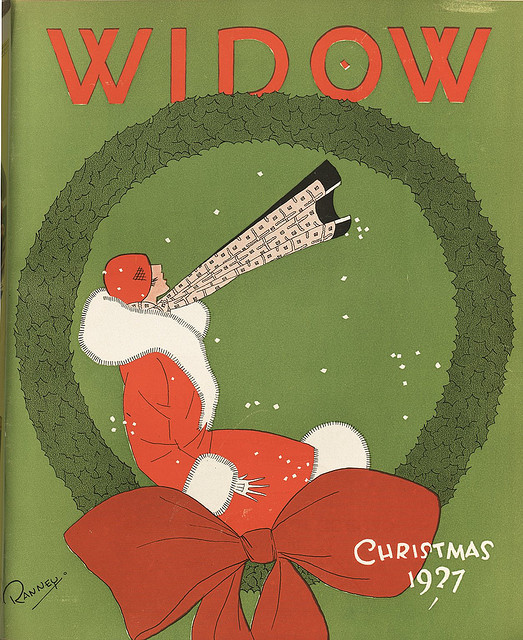I’m delighted to have been invited to deliver a research seminar presentation as part of the Inventions of Text seminar series at Durham’s English department. You can find an abstract for my talk below, and the presentation will follow soon! Please do consider coming along, and see the website below for more details.
Abstract
 While feminist scholarship has explored the roles of wives, mothers, daughters, sisters and single women throughout large parts of history and up to the present day, the figure of the widow and her significance in British literature and culture remain significantly underexplored. The widow transgressed mid-Victorian gender and social norms, not least due to her ambiguous status as a woman who was more respectable than a spinster (because of her former status as wife), yet also sexually experienced, able to own her own property, unguarded by a male protector, and available for remarriage. In subsequent decades and, indeed, the subsequent century, the widow came to hold a long-lasting and often equally complex and contradictory position in British culture. She played a key role in the ritualization of mourning and in debates surrounding women’s property laws in the mid-nineteenth century; her image has been repeatedly utilised in campaigns for rational dress and women’s rights across the centuries; she became a prime object of psychoanalytic and psychiatric inquiry in the medicalization of grief in the early twentieth century; was a central image in war propaganda and in debates surrounding the development and perceived failures of the welfare state; and, in the 1960s and 1970s, amidst the Women’s Liberation Movement, widows became one of many groups of women who sought gender equality and organised themselves into political groups.
While feminist scholarship has explored the roles of wives, mothers, daughters, sisters and single women throughout large parts of history and up to the present day, the figure of the widow and her significance in British literature and culture remain significantly underexplored. The widow transgressed mid-Victorian gender and social norms, not least due to her ambiguous status as a woman who was more respectable than a spinster (because of her former status as wife), yet also sexually experienced, able to own her own property, unguarded by a male protector, and available for remarriage. In subsequent decades and, indeed, the subsequent century, the widow came to hold a long-lasting and often equally complex and contradictory position in British culture. She played a key role in the ritualization of mourning and in debates surrounding women’s property laws in the mid-nineteenth century; her image has been repeatedly utilised in campaigns for rational dress and women’s rights across the centuries; she became a prime object of psychoanalytic and psychiatric inquiry in the medicalization of grief in the early twentieth century; was a central image in war propaganda and in debates surrounding the development and perceived failures of the welfare state; and, in the 1960s and 1970s, amidst the Women’s Liberation Movement, widows became one of many groups of women who sought gender equality and organised themselves into political groups.
 The widow’s sustained but changing role in British culture has been reflected and further illuminated through her representations in British literature and cultural texts during these periods, from Victorian comic songs and guides on mourning etiquette, to fin-de-siecle fiction, suffragette propaganda, inter-war women’s writing, and the post-war novels of the 1950s and 1960s. Yet, while the significance and history of rituals of grief and the economic and social contexts of widowhood in the nineteenth and early-twentieth centuries have received some attention by historians, to date no sustained effort has been made to trace the gendered concerns manifested in literary and cultural representations of the widow.
The widow’s sustained but changing role in British culture has been reflected and further illuminated through her representations in British literature and cultural texts during these periods, from Victorian comic songs and guides on mourning etiquette, to fin-de-siecle fiction, suffragette propaganda, inter-war women’s writing, and the post-war novels of the 1950s and 1960s. Yet, while the significance and history of rituals of grief and the economic and social contexts of widowhood in the nineteenth and early-twentieth centuries have received some attention by historians, to date no sustained effort has been made to trace the gendered concerns manifested in literary and cultural representations of the widow.
My research addresses this relative void in literary scholarship and social and cultural history. The talk will provide an interdisciplinary examination of the gendered representations and functions of the widow in British literature and culture, from the 1850s through to 1979, when British campaigns finally led to the abolition of the heavy taxation of widows’ pensions. Contextualising literary analysis within a wider set of cultural texts and discourses, including political campaigns and propaganda, medical and legal sources, religious pamphlets, and advertising, this talk gives an overview of how textual illustrations of the widow reflect, illuminate and engage with these contexts, as well as the gendered anxieties and issues the figure of the widow has come to represent in Britain since the nineteenth century.

1 Comment on “[Research Seminar] The Widow: A Literary & Cultural History (1837-1979)”